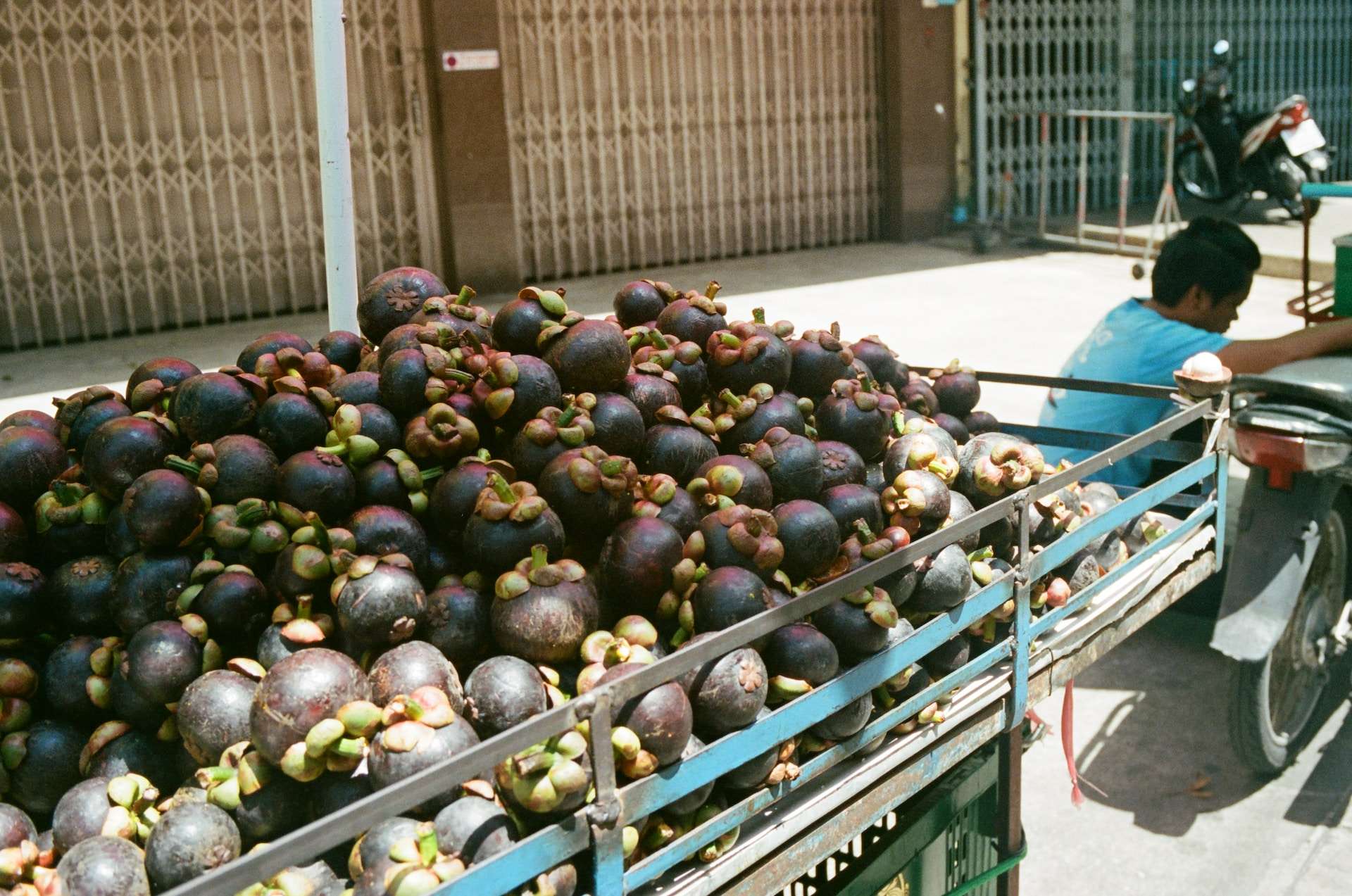
Mangosteens are exotic tropical fruits that have gained popularity in recent years due to their unique flavor and numerous health benefits. Native to Southeast Asia, these small purple fruits have a tough outer rind and a sweet, juicy flesh that is often described as a combination of various tropical flavors like pineapple, peach, and strawberry.
In addition to their delicious taste, mangosteens are also packed with essential nutrients and antioxidants, making them a preferred choice for health-conscious individuals. From boosting immune function to promoting heart health, these fruits offer a range of potential benefits.
In this article, we will explore 13 fascinating facts about mangosteens, from their origins and cultivation to their nutritional value and culinary uses. So, if you’re curious to learn more about this exotic fruit and how it can enhance your well-being, keep reading!
Key Takeaways:
- Mangosteens, the “queen of fruits,” offer a delicious blend of sweet and tangy flavors, packed with vitamins and antioxidants for a healthy immune system. They’re a tropical delight worth savoring!
- Despite their challenging cultivation, mangosteens are a symbol of good luck and prosperity in some cultures. Their limited availability adds to their allure as a sought-after, exotic fruit.
King of Tropical Fruits
Did you know that mangosteens are often referred to as the “king of tropical fruits”? With their round shape, deep purple rind, and luscious white flesh, they truly reign supreme in the fruit kingdom.
Origin
Mangosteens originated in Southeast Asia and are primarily found in countries like Indonesia, Thailand, and Malaysia. The warm and humid climate of these regions provides the perfect conditions for this tropical fruit to thrive.
Exquisite Flavor
The taste of a ripe mangosteen is simply exquisite. Its juicy pulp is a harmonious blend of sweet and tangy flavors, reminiscent of a combination of strawberries, peaches, and citrus fruits.
Nutritional Powerhouse
Beneath the appealing taste, mangosteens pack a nutritional punch. They are rich in vitamins C, E, and B6, as well as minerals like potassium, calcium, and iron. These nutrients contribute to overall health and well-being.
Antioxidant Rich
Mangosteens contain plenty of antioxidants, which help combat free radicals and protect the body against oxidative stress. The xanthones present in mangosteens have been linked to various health benefits, including anti-inflammatory and anti-cancer properties.
Rind with Unexpected Uses
While the white fleshy segments of the mangosteen steal the show, the rind is not to be ignored. It is often used in traditional medicine to treat various ailments, including skin infections, digestive issues, and even urinary tract infections.
Symbol of Good Luck
In some cultures, mangosteens are considered a symbol of good luck and prosperity. They are often displayed or given as gifts during special occasions and celebrations.
Fragrant Aroma
When you slice open a ripe mangosteen, you are greeted with a delightful fragrance that can be described as a mix of floral and citrus notes. It’s an olfactory experience that adds to the overall enjoyment of this tropical fruit.
Challenging to Grow
Mangosteens are notoriously challenging to cultivate. They require specific soil conditions, high humidity, and a long growing season. This labor-intensive process explains why they are often considered a luxury fruit.
Limited Availability
Due to the delicate nature of mangosteen trees and their specific growing requirements, they have limited availability in many parts of the world. This rarity adds to their allure and makes them a sought-after fruit.
Street Food Delicacy
In countries like Thailand, mangosteens are a popular street food delicacy. Vendors often sell them freshly cut and ready to eat, allowing locals and tourists to indulge in this tropical treat on the go.
Boosts Immunity
Thanks to their high vitamin C content, mangosteens can give your immune system a significant boost. Consuming this fruit regularly may help ward off common illnesses and keep you feeling healthy and vibrant.
Versatile Culinary Uses
Mangosteens aren’t just enjoyed on their own; they can also be used in various culinary creations. From refreshing smoothies and desserts to savory salads and sauces, mangosteens add a unique touch to any dish.
In conclusion, mangosteens are not only a tropical delight but also a fruit with numerous health benefits. From their exquisite flavor and fragrance to their abundance of antioxidants, these “queen of fruits” are truly worth exploring. So go ahead and savor the exceptional taste and goodness of mangosteens whenever you get a chance!
Conclusion
In conclusion, mangosteens are a fascinating and delicious fruit that have numerous health benefits and are packed with nutrients. From their exotic appearance and flavor to their potential anti-inflammatory and antioxidant properties, mangosteens truly deserve their status as a superfood. Whether you enjoy them fresh, dried, or in juice form, incorporating mangosteens into your diet can be a tasty and nutritious way to support your overall well-being. So go ahead and indulge in this tropical treat and discover the many wonders of mangosteens.
FAQs
Q: How do you eat a mangosteen?
A: To eat a mangosteen, gently score the thick purple rind with a knife, being careful not to cut into the fruit. Once scored, twist the fruit open to reveal the juicy white segments inside. Simply use your fingers to remove the segments and savor the sweet and tangy flesh.
Q: Are mangosteens good for you?
A: Yes, mangosteens are incredibly good for you. They are rich in vitamins, minerals, and antioxidants that can support a strong immune system, improve digestion, and promote heart health. Additionally, they have been linked to potential anti-inflammatory and antibacterial properties.
Q: Where are mangosteens grown?
A: Mangosteens are native to Southeast Asia, particularly in countries like Thailand, Indonesia, Malaysia, and the Philippines. However, they are also grown in other tropical regions around the world, including parts of Africa, the Caribbean, and Central America.
Q: Are mangosteens easy to find?
A: Mangosteens can be a bit challenging to find, especially if you’re living in a non-tropical region. However, they may be available in specialty grocery stores or international markets. You can also find them in frozen, dried, or juice form. Online retailers may also offer mangosteens for purchase.
Q: Can anyone eat mangosteens?
A: Most people can enjoy mangosteens without any issues. However, if you have known allergies to fruits or have a specific medical condition, it’s best to consult with a healthcare professional before incorporating mangosteens into your diet.
Mangosteens, with their unique flavor and health benefits, are just one example of the fascinating world of tropical fruits. Dive into the nutritional facts of Dole's tropical fruit selection, learn how antioxidants in fruits like mangosteens can boost your well-being, or explore the intriguing characteristics of exotic fruits like papayas. Each article offers a wealth of knowledge that will leave you craving more information about these delightful and wholesome treats from nature's bounty. So, which captivating fruit will you investigate next?
Was this page helpful?
Our commitment to delivering trustworthy and engaging content is at the heart of what we do. Each fact on our site is contributed by real users like you, bringing a wealth of diverse insights and information. To ensure the highest standards of accuracy and reliability, our dedicated editors meticulously review each submission. This process guarantees that the facts we share are not only fascinating but also credible. Trust in our commitment to quality and authenticity as you explore and learn with us.


